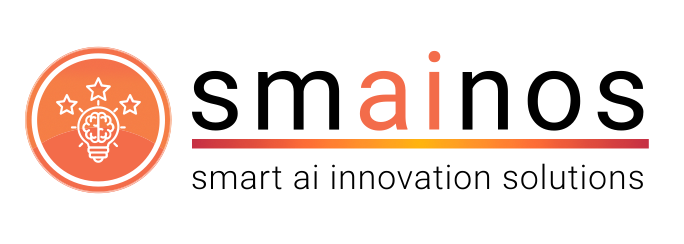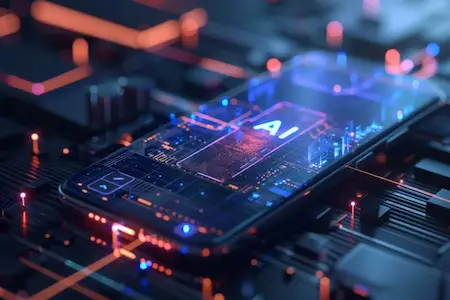
In today’s rapidly evolving technological landscape, artificial intelligence has moved from science fiction to an everyday reality that shapes our lives in countless ways. Whether you’re a business leader, technology professional, or simply an intellectually curious individual, developing a comprehensive understanding of AI is becoming increasingly essential. This article presents a carefully curated selection of books that together provide a well-rounded education on artificial intelligence – from its societal implications to ethical considerations and technical implementation.
Disclosure: This post contains Amazon affiliate links. Should you purchase any of the recommended books through these links, I may earn a commission at no additional expense to you.
The Big Picture: Understanding AI’s Impact on Society
The societal implications of artificial intelligence extend far beyond technological innovation. To truly grasp how AI is reshaping our world, we need to examine its effects on human history, culture, and our collective future.
Nexus by Yuval Noah Harari [Amazon affiliate link] offers a profound exploration of how information networks have shaped human history and how AI might transform our future. Harari, known for his ability to synthesize complex historical trends, traces the evolution of information systems from ancient storytelling to modern digital platforms.
What makes this book particularly valuable is Harari’s balanced approach to the potential benefits and risks of AI. He introduces concepts like the “Silicon Curtain” – the growing technological divide between nations – and the alignment problem in AI development. By examining how information technologies have previously transformed societies, Harari provides a framework for understanding AI’s potential impact on democracy, privacy, and global power structures.
Similarly, The Singularity is Nearer by Ray Kurzweil [Amazon affiliate link] takes a futurist perspective on AI’s societal implications. Kurzweil, a renowned inventor and futurist, expands on his earlier predictions about the Singularity – the hypothetical point where technological growth becomes uncontrollable and irreversible.
What distinguishes Kurzweil’s work is his optimistic view of how AI and related technologies might help humanity overcome fundamental limitations. He explores how advances in AI, brain-computer interfaces, and nanotechnology could transform human capabilities, potentially addressing challenges like disease and aging. At the same time, he thoughtfully considers the ethical and governance questions that arise from such transformative technologies.
The real question is not whether machines think but whether humans do.
– B.F. Skinner
This provocative quote from behavioral psychologist B.F. Skinner reminds us that as we develop increasingly sophisticated AI systems, we must continue to reflect on human cognition and decision-making. The books in this section help us engage with these deeper philosophical questions while maintaining a practical understanding of AI’s societal impacts.
Ethical Frameworks and Regulatory Considerations
As AI systems become more powerful and ubiquitous, the need for ethical frameworks and appropriate regulation becomes increasingly urgent. Understanding these aspects is crucial for responsible AI development and deployment.
TRUST by Dominique Shelton Leipzig [Amazon affiliate link] provides business leaders with essential guidance on responsible AI implementation, data management, and digital innovation. Leipzig challenges the Silicon Valley mantra of “move fast and break things,” offering instead a framework for ethical data practices and trust-building with stakeholders.
What makes this book particularly valuable in today’s environment is its practical approach to responsible innovation. Leipzig doesn’t just theorize about ethics – she provides actionable frameworks for corporate leaders to implement ethical AI practices while still driving innovation. The book addresses how organizations can protect their brand reputation while navigating increasingly complex data protection regulations and consumer expectations.
For those seeking a deeper examination of the potential risks of advanced AI, Superintelligence by Nick Bostrom offers a thorough analysis of the challenges associated with creating machines that surpass human cognitive abilities. Bostrom examines various paths to superintelligence, potential dangers, and strategies for mitigating risks.
Central to Bostrom’s work is the “AI control problem” – the challenge of ensuring that increasingly capable AI systems remain aligned with human values. This concept has become fundamental to discussions about AI safety and governance, making Bostrom’s book essential reading for anyone concerned with the long-term implications of AI development.
Technical Implementation: From Theory to Practice
Understanding the societal and ethical dimensions of AI provides crucial context, but technical knowledge is equally important for those looking to implement AI solutions or work in the field.
Prompt Engineering for Generative AI by James Phoenix & Mike Taylor [Amazon affiliate link] offers practical guidance on one of the most immediately applicable skills in today’s AI landscape. The book provides principles and techniques for crafting effective prompts for large language models (LLMs) and diffusion models, focusing on transferable skills across various AI applications.
What makes this resource particularly valuable is its emphasis on fundamental concepts rather than platform-specific tricks. Phoenix and Taylor cover advanced methods like chain-of-thought prompting, enabling readers to adapt their skills as generative AI tools continue to evolve. For business professionals and developers alike, this book provides immediate practical value in leveraging AI tools more effectively.
For those looking to build production-ready AI systems, AI Engineering by Chip Huyen [Amazon affiliate link] is an essential guide. Huyen covers the entire lifecycle of AI applications built with foundation models, from model selection and dataset engineering to deployment strategies.
The book addresses practical challenges that aren’t often covered in academic treatments of AI, such as latency, cost considerations, and integration with existing systems. This focus on real-world implementation makes it invaluable for software engineers and technical managers responsible for delivering AI solutions that work reliably in production environments.
For those specifically focused on large language models, Building LLM Powered Applications by Valentina Alto [Amazon affiliate link] provides comprehensive coverage of creating applications using LLMs. The book includes hands-on examples for developing chatbots, content generators, and sentiment analysis tools, making it an excellent resource for developers new to working with these powerful models.
Visual Learning Resources
While books provide depth and comprehensive coverage, visual resources can be valuable supplements to your AI education. Here are some recommended video resources from reputable organizations:
1. Microsoft AI Fundamentals – This learning path provides a solid introduction to AI concepts and Microsoft’s AI services, suitable for beginners and business professionals.
2. Google’s Machine Learning Crash Course – Google’s free course offers a practical introduction to machine learning with TensorFlow, including hands-on exercises and real-world examples.
3. DeepLearning.AI’s Specializations on Coursera – Founded by AI pioneer Andrew Ng, these courses cover everything from AI fundamentals to specialized topics like generative AI and LLMs.
4. MIT OpenCourseWare’s Introduction to Deep Learning – This lecture series from MIT provides academic depth while remaining accessible to motivated learners.
5. Stanford’s CS224N: Natural Language Processing with Deep Learning – For those interested in the technology behind LLMs, this course offers detailed coverage of natural language processing.
Bringing It All Together
A comprehensive AI education requires understanding the intersection of society, ethics, and technology. The books and resources highlighted in this article provide complementary perspectives that together offer a well-rounded view of artificial intelligence and its implications.
By studying societal impacts through works like Harari’s “Nexus” and Kurzweil’s “The Singularity is Nearer,” ethical frameworks through Leipzig’s “TRUST” and Bostrom’s “Superintelligence,” and technical implementation through books like “Prompt Engineering for Generative AI” and “AI Engineering,” readers can develop the multidimensional understanding needed to navigate the AI revolution responsibly and effectively.
For those seeking to expand their AI library further, visit smainos.com/shop for additional curated book recommendations covering various aspects of artificial intelligence. Whether you’re a business leader developing an AI strategy, a technologist implementing AI solutions, or simply a curious mind wanting to understand this transformative technology, investing in your AI education today will prepare you for the increasingly AI-driven world of tomorrow.
Remember that true AI literacy isn’t just about technical knowledge or philosophical understanding alone – it’s about bringing these perspectives together to form a holistic view that enables informed decision-making in an age where artificial intelligence is becoming increasingly central to our businesses, societies, and lives.




